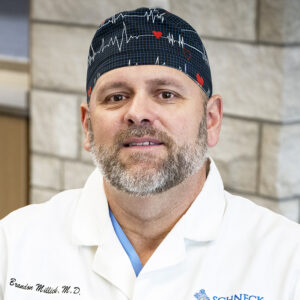What is a Hernia?
A hernia occurs when an internal organ enters the neighboring muscle or tissue. Hernias are often in the stomach, abdomen, or groin. This condition tends to present a visible bulge that emerges and subsides during different activities. It can sometimes cause discomfort as well. While not all hernias need treatment, surgical intervention may sometimes be necessary for hernia repair.
What Causes a Hernia?
Hernias may arise from weaknesses or openings in muscle or connective tissue. They can be present from birth or appear later. Risk factors can include heavy lifting, chronic cough, and constipation, among other variables. It's best to seek medical care to receive an accurate diagnosis for the real cause of any discomforts you experience.
Hernia Testing and Diagnosis
Identifying a hernia requires a physical examination. Soft tissue imaging, like a CT scan, may be necessary for a precise diagnosis. Your provider might observe the hernia during specific activities to further assess its severity. After these steps, they'll talk with you to create a plan for necessary treatment.
Hernia Treatment at Schneck
Hernia repair is the recommended treatment for abdominal wall protrusion. Treatment techniques will depend on the specific type of hernia such as ventral or umbilical. Our skilled surgeons offer open hernia repair or laparoscopic hernia surgery. During the 30 to 45-minute procedure, your provider will make incisions while you're under anesthesia. The process aims to prevent organ protrusion. While the procedure may sound extensive, most patients go home the same day. For expert care and support with hernia symptoms, contact Schneck to connect with our dedicated providers.









